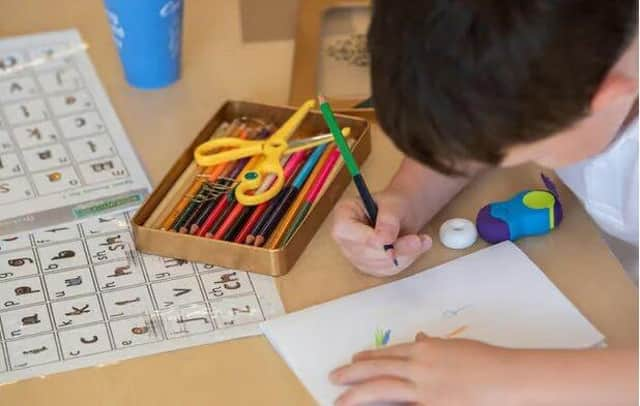Care-giving role of Lancashire special school staff looking after pupils with medical needs ‘clarified’ under new policy


A new policy adopted by Lancashire County Council aims to ensure that children with special educational needs and disabilities receive “the right support, at the right time, in the right place”.
It comes more than four years after a task group established by the authority concluded that there was no clear division between responsibility for “basic care” provided by school staff and the kind of clinical interventions that should be delivered by health professionals.
Advertisement
Hide AdAdvertisement
Hide AdThe new guidance has been developed with the aim of clarifying those roles in order to best meet pupils' needs and reduce what a report to the authority’s cabinet members described as “inequalities in special school nursing provision”.
The cabinet meeting at which the policy was given the green light was told that special school staff are supporting youngsters with more complex medical needs, but not always themselves receiving support from the most appropriate practitioners - with the risk being that their educational role is compromised as a result.
A “strengthened” school nursing service will enable all of the county’s special schools to “confidently deliver provision to pupils with medical conditions”, councillors were told. The policy will subsequently be rolled out to mainstream Lancashire schools with special needs units in order to ensure that every education facility is following guidance laid down by the Department for Education for supporting pupils with medical needs.
Cabinet member for education and skills Jayne Rear said it was important that special school pupils with medical conditions "receive the best support from the most suitable professionals”.
Advertisement
Hide AdAdvertisement
Hide Ad“Staff working within our schools need clear information and guidance so that they can help ensure the medical needs of children are safely met and that those children can develop at their own pace and enjoy every aspect of school life.
“[The issue] has been challenging to address, but I’m pleased that we now have a clearer offer of support - including from special school nursing services - and a shared commitment to continue to work together with Lancashire’ special schools in future,” County Cllr Rear added.
The task group inquiry in 2018 found that some daily care practices were being “pushed down onto education support staff who were not medically trained beyond basic courses”.
The new policy divides care tasks into three categories - universal, targeted and specialist.
Advertisement
Hide AdAdvertisement
Hide AdUniversal interventions are described as “routine” and those which school staff can carry out themselves with basic training. They include administering some medications and providing intimate personal care, like changing soiled clothing.
Targeted care requires the school staff offering it to have been trained usually by at least a Grade 5-qualified nurse who has relevant experience. That training is deemed to enable tasks such as nasal feeds, injections and management of tracheostomy care to be “safely...delegated to non-health mqualified staff” following an assessment of the clinical risk to an individual child.
Specialist interventions are those that Royal College of Nursing (RCN) has previously concluded cannot be delegated safely - and includes reinsertion of nasogastric and gastrostomy tubes, deep oral suctioning and invasive treatments requiring clinical decisions.
The RCN has recently withdrawn the task levels on which the new Lancashire policy is based, but these are expected to be replaced by a new framework of recommendations, at which point the county’s guidelines will be reviewed.
Advertisement
Hide AdAdvertisement
Hide AdThe new county guidebook was drawn up following consultation with families, schools and health commissioners and was agreed by the NHS Lancashire and South Cumbria Integrated Care Board (ICB) in January, ensuring a consistent approach across the whole region.
It obliges the ICB to ensure that commissioning “is responsive [to] children's needs and that health services are able to co-operate with schools supporting pupils with medical conditions”.
The body is responsible for providing clinical support to children in schools who have long-term conditions and disabilities and whose care needs go beyond the remit of council-commissioned school nurses.